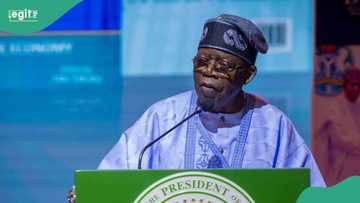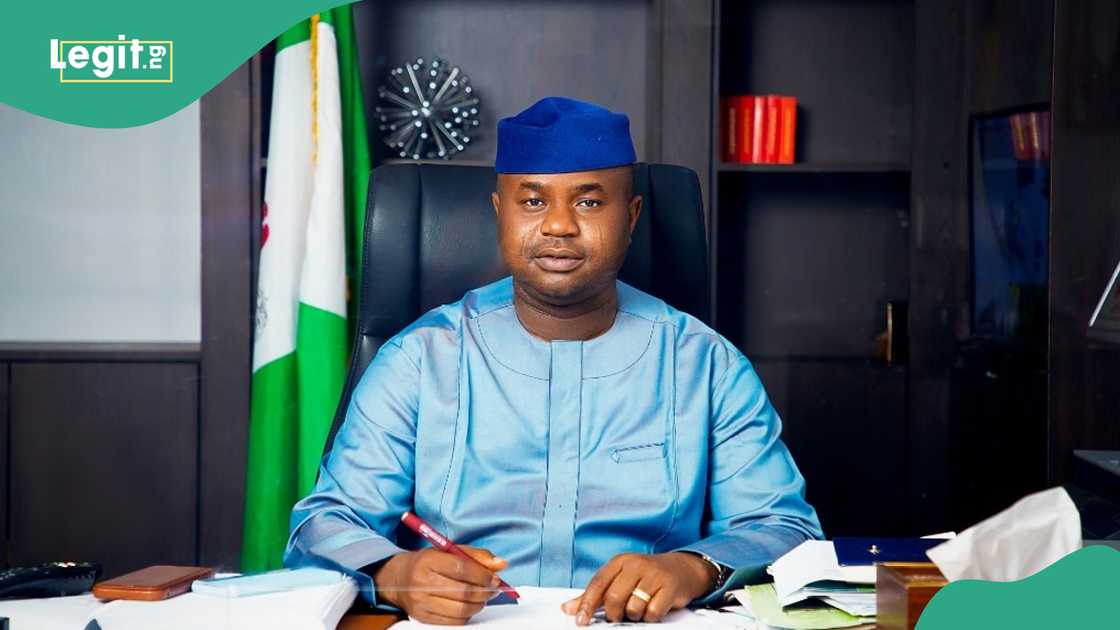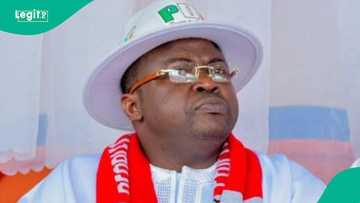Young Nigerians Rise for Reform as NEC 2025 Finalists Spotlight the Future of Tax and Governance
- The 2025 National Essay Competition ended in Abuja on Wednesday, November 26, 2025
- The competition produced some notable winners whose essays focused on Nigeria’s emerging tax reforms
- The overall winner carted home the top prize, with ideas and passion shaping the event
The 2025 National Essay Competition came to a close in Abuja on November 26 with a clear message from Nigeria’s emerging thinkers: the future of the nation rests on reform, responsible leadership and a renewed commitment to taxation as a driver of development.
Vincent Maduka took home the top prize, while Loveson Anselm and Ogunleye Ayomide finished as first and second runners-up.

Source: Original
Their ideas and passion shaped an event that has quickly become a platform to elevate young Nigerians who rarely get the national recognition they deserve.
A vision beyond entertainment
This year’s competition was sponsored by the Federal Inland Revenue Service and convened by Foluso Sylvanus Ojo, publisher of the Abuja City Journal.
The initiative was born out of frustration that hardworking students are often overshadowed in national celebrations. Ojo recalled moments when academic excellence was rewarded with small sums while entertainers earned millions.
According to him, the competition was created to challenge that narrative and celebrate intellectual achievement.
“We want young people to be recognized for their ideas and their contribution to nation building. It is painful to see academic excellence not taken seriously. This event is a correction to that,” Ojo said.
Youth take the lead on reform
The theme, Write the Future, pushed participants to explore how tax reforms can support national growth, strengthen governance and reduce reliance on unstable revenue streams.
The essays reflected a shared belief that Nigeria’s tax system will play a central role in shaping the economy in the coming decade. The competition became a space for young Nigerians to rethink the future of policymaking and interrogate misconceptions about taxation.
For finalist Loveson Anselm, a medical student from the University of Jos, the competition was an eye-opener.
He entered in the middle of his professional exams and found himself drawn deeper into national policy and economic reform. He believes that many of the negative narratives about tax policies are driven by misinformation.
“What I discovered is that the intention behind the reforms is real and if it is carried through it can improve Nigeria’s fiscal strength,” he said.
The FIRS and the push for national development
The FIRS was at the centre of the event’s success and used the opportunity to stress the importance of educating the next generation about tax administration. Mohamed Adaya Salisu, Chief Economic Advisor to the FIRS Chairman, emphasised that the organisation is committed to funding education and building human capital.
“The future is bright. Investing in young people is the foundation for long-term growth,” he said.
A call to keep building
Engineer Michael Oluwagbemi also addressed the gathering. He described Nigeria as a nation with huge challenges but even greater potential. With one of the world’s youngest populations, he believes the country stands at a defining moment.

Read also
Rampant attacks and killings: Tinubu declares "I won't let it", speaks on what he'll do next

Source: UGC
As the event wrapped up, the winners were urged to keep learning, stay curious and continue shaping the nation’s direction. Anselm shared a message that echoed through the hall: education remains the greatest tool for transformation.
Tension as FIRS debunks Atiku’s allegations
Legit.ng earlier reported that the FIRS has dismissed recent comments by former Vice President Atiku Abubakar over what he described as questionable dealings in the country’s revenue-collection system.
Atiku had raised concerns about the appointment of Xpress Payments as part of the platform's handling of government payments.
The agency says the allegations are inaccurate and risk stirring needless political tension around a system built on transparency and long-standing procedures.
Source: Legit.ng




